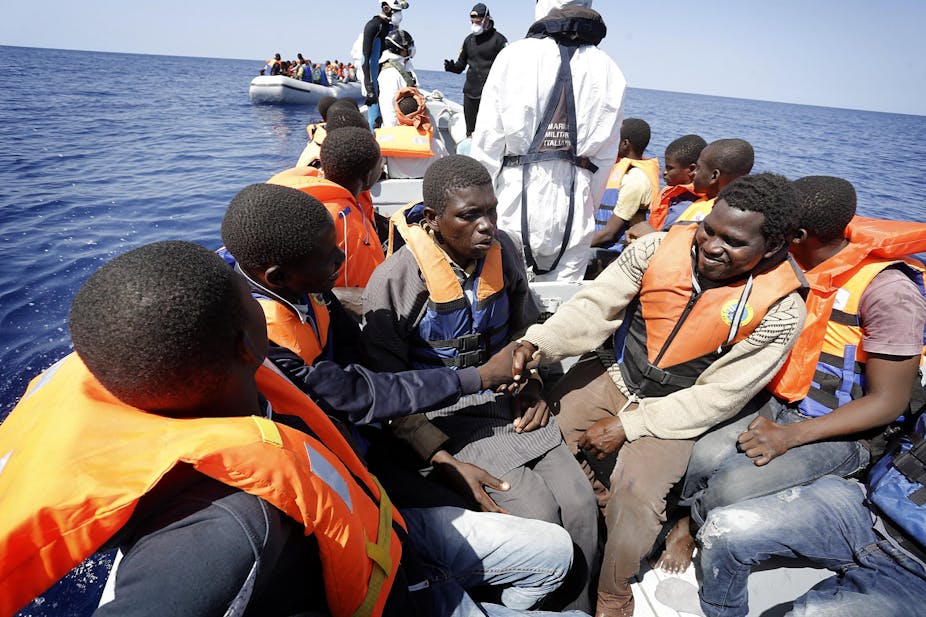Mare Nostrum was a genuine attempt by the Italians to deal with this problem, but I think I am right in saying that more people died during the operation of that policy than when it was brought to an end.
David Cameron at Prime Minister’s Questions
It is estimated by the UNHCR that 3,343 people lost their lives in the year of the Italian Mare Nostrum programme. At the same time an estimated 150,000 people were rescued. The prime minister’s claim that more people died during the Mare Nostrum search and rescue operation seems disingenuous, as without it there would almost certainly have been a far higher death toll. Mare Nostrum ran from October 18 2013 – November 1 2014.
It is hard to build a statistical case to support Cameron’s analysis as the EU’s Triton operation has only been in place for four months over the winter which is generally the quietest period in patterns of irregular migration. It remains to be seen whether the scaled down operation can cope with the demand.
Aid agencies responded with dismay at the ending of Mare Nostrum in November 2014. The Triton operation has an entirely different focus which, according to its mandate is “primarily border management”.
The peak season for irregular Mediterranean crossings begins in Spring. Nevertheless early indications are alarming. In February, the UNHCR noted 50 deaths in 2015 compared to 12 the previous year; a significant increase. In fact the figures were grossly under-estimated. The scale of the most recent disaster was initially underestimated but as two more dinghies were recovered survivor testimony suggested that around 300 people, including young children, lost their lives in the latest incident. The passengers had left Libya in several small dinghies without food or water. Most were crudely labelled economic migrants, masking their personal stories as nationals from some of the most unstable countries in Africa.
Compared to the same period last year this number presents a dramatic increase. Human Rights Watch, the UNHCR and Amnesty International have all recognised that the replacement of Mare Nostrum will only add to this death toll.
The government has argued that the prospect of rescue encourages migrants to take this particularly dangerous route. The evidence offers a contrast here too. The increasing number of Syrians who are resorting to this route, in addition to Eritreans and Mauritanians who are also fleeing human rights abuses and political insecurity, emphasise that the demand for sanctuary and/or security is far more likely to be a motive. They are aware of the dangers but will risk everything in order to escape the dangers at home. This journey is rarely a choice but is rather a last chance option. Why else would people risk the lives of the most vulnerable family members?
The reason for this is clear. All other routes to safety and security are effectively impossible due to measures aimed at detection and prevention of irregular migration. These measures lump asylum seekers together with economic migrants. As long ago as 1999 it was recognised in the British Courts that there were effectively no legal ways for a refugee to enter the UK.
Review
The review is accurate and offers a convincing counter argument to David Cameron’s statement. What the UK PM is trying to do here is a double act: reinforcing the position his government put forward last October against rescue operations in the Mediterranean as, the UK government argued, they act as “pull factors” for irregular crossings, while paying lip service to the Italian government that embarked in €9m a month operation that rescued more than 150,000 people.
Verdict
David Cameron’s statement is disingenuous because he is comparing a year’s worth of migration with four months’ worth. But early figures show that more lives have been lost in the first months of this year compared to the first months of Mare Nostrum.
Click here to request a check. Please include the statement you would like us to check, the date it was made, and a link if possible. You can also email factcheck@theconversation.com

